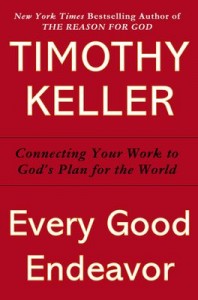I have a new and exciting diet plan for those of you out there who wish to shed pounds. In fact, I’ll guarantee you lose weight! It’s easy, just follow the steps below:
- Eat PBJ for lunch (on whole wheat with extra gluten) every day (not required)
- Eat whatever else you want – I recommend no-sugar-added Blue Bunny Bunny Tracks ice cream (not required)
- Run four miles a day on old knees with disintegrating menisci (not required)
- Drink a “touch” of red wine or perhaps a “smidgen” of Scotch most nights (these terms are synonyms for “somewhat less than half your body weight” – not required, but highly recommended)
- Most importantly, be in your “prime earning years” while earning, get this, nothing at all! (required)
Voila! Somehow – I think it’s magic – your stomach digests everything, including your stomach, at an amazing rate. You’ll shed pounds! You’ll shed hair!*
*(If you’re not already bald. And, unfortunately, you old guys won’t shed your ubiquitous ear and back hairs, your new unruly eyebrow/beanstalk hairs, nor your nose hair mustache.)
The Back Story
Through no fault of my own, except for most of the professional choices I’ve made in the last twenty-five years, I find myself in the unenviable position of “looking for work.” If you’ve read the About the Author paragraph on the home page, you’ll know that I voluntarily abandoned a sought-after position some years ago. My thought at present? Undo! Do-over! Mulligan! The people who say they have “no regrets” are either liars or stupid liars.
Most nights I’m awakened by Chicken Little running through my head screaming what Chicken Little screams. I say, “preach it, brother!” Then, Chicken Big follows him screaming, “Don’t worry about the sky falling, the Earth will open up and swallow us first!” (We do live in Florida, by the way, so this is more than 50% likely on a good day.) The whole situation has my gut in a knot. Frankly, it’s kind of a nightmare.
Beneath the Crashing Waves
My confession to you, and my testimony, is that this is not how it should be. Now, my situation is not how I want it to be, but it is my reaction that is not how it should be.
What should not be is the knot in my stomach. What should not be is the voice in my head and in my sleep. What should not be is the hand-wringing, faithless worry of which I’ve been guilty. What should be is the “peace that passes understanding.” (Phil 4:7)
Rejoice in the Lord always; again I will say, rejoice. Let your reasonableness be known to everyone. The Lord is at hand; do not be anxious about anything, but in everything by prayer and supplication with thanksgiving let your requests be made known to God. And the peace of God, which surpasses all understanding, will guard your hearts and your minds in Christ Jesus. (Philippians 4:4-7 ESV, emphasis mine)
I am more than ashamed that I’ve been anxious – that my understanding of God’s providence, of his sovereign control, of his love and his promises, have not been brought to bear on how I’ve handled this setback. I guess the old epithet “those who can’t do, teach” is at least partly true in this case. I’ve taught Sunday school and Bible studies for almost 20 years, and in my study and experience, I’ve learned again and again the faithfulness of God. This faithfulness extends to far more than “fixing” my present lamentable circumstance, which he is likely to do in his good time. Regardless on the timing or outcome of this wait, I should appreciate and focus on the completed work of Christ on the Cross. If I never have another payday, or another meal, or share another laugh, or feel another hug, I should be content with what he’s done for me in his Son. My next breath, my next heartbeat, and all my future hopes are all of grace.
Providence
Many believers watch our lives for little “blessings,” or “miracles,” as if we need proof all over that God is real and he’s there and he loves us. Our tendency is to make something supernatural out of every event, as if that’s the only way God works. We need to have up-to-the-minute evidence on his résumé that he’s involved. We have “God sightings” or see “God at work” whenever there are fortuitous circumstances. Should we praise God for these good things? Of course! Just don’t manufacture evidences that make him seem more immediately (directly) involved than we can know for certain. First, it’s uncaring (and hubris?) to brag of his activity in your life to those who know no such privilege. Second, we train ourselves to imagine perpetually sunny days, and lose the ability to praise him for gray, hazy days, and imagine him to have abandoned us in the darkest storms.
Further, we often tend to connect, one-to-one, our circumstance to our performance or faithfulness. Those who prosper are being rewarded and those who suffer are being punished, or God is “teaching them something.” While it may very well be that I’m suffering my own poor choices, there are far too many situations we all know of where suffering is clearly not the fault of the sufferer (I know of some folks close to me in this category, further bringing my own “suffering” into perspective). That some real schmucks prosper ought also dispel that myth. So, how does God work?
There is far more to the biblical doctrine (teaching) of God’s providence than can be contained in a large book, much less a short post. Briefly, God uses means. We are fed by farmers and cooks and bakers, healed by doctors, taught by teachers, protected by soldiers, police and firemen and women. When we take the super-supernatural view, we lose the appreciation (and praise!) we should have for God’s providence in the everyday – the mundane, the ordinary. Think of it this way, if you wonder about God’s present activity, by the power of his might, he’s holding the atoms together that make up your body and the world around you. He’s always present and active, and yes, it seems there are sometimes “miracles” (supernatural intervention), but he mostly uses secondary causes (means – nature, you and me) to effect his perfect will.
should have for God’s providence in the everyday – the mundane, the ordinary. Think of it this way, if you wonder about God’s present activity, by the power of his might, he’s holding the atoms together that make up your body and the world around you. He’s always present and active, and yes, it seems there are sometimes “miracles” (supernatural intervention), but he mostly uses secondary causes (means – nature, you and me) to effect his perfect will.
[BTW, I recommend the book, Every Good Endeavor: Connecting Your Work to God’s Work for a good overview of work/providence.]
And yes, he has good purpose in all that comes to pass (Romans 8:28), but clearly some of what “comes to pass,” we wish would pass more quickly. So, he has some purpose even in our tragic, baffling, suffering. While I’m sure to touch more on this in later posts, I’ve come to the conclusion that we’re rarely able to discern with any precision what he’s doing and why (sometimes we get a clue after the fact). And finally, here’s my point: In all our circumstances, as Paul says, “in plenty and in want” (Phil. 4:12), we are to be content. What he is teaching us as we reflect on him and his promises and his faithfulness, and what we should practice to find contentment, are gratitude for what he’s done, and trust in what he will do.
I’m blind to the Lord’s plan for me. Fruitlessly, I strain to see farther than the fog allows. In one sense, I don’t sit on my duff (“Let go and let God”), but forge ahead, actively pursuing work, knowing in whose hands my future truly lies. In another sense, I rest, with gratitude for all he’s done, and trust for what comes next. Pray that it would always be so.

